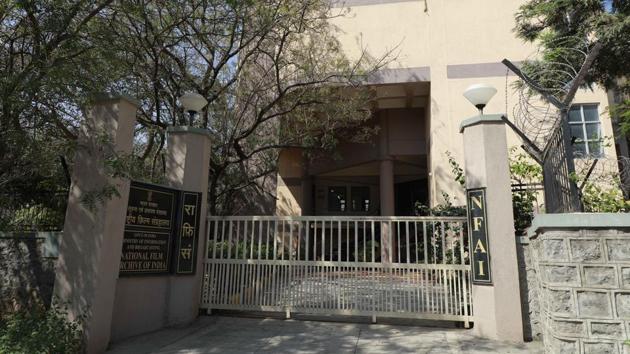Pune’s research institutes see dip in fund allocation
The premiere film institutions were allotted Rs117.17 crore, part of which will be used for revamp of FTII and NFAI. An amount of Rs28 crore was set aside in the budget capital expenditure on construction at various institutes under the I&B Ministry,including Jayakar bungalow,which houses the NFAI, in 2013.
Pune The Union Budget 2018-19 announced by finance minister Arun Jaitley on Thursday focuses on digital and technological enhancement of education and research sector among others. Considering the last three years of budget allocation in prominent educational and research institutes, the numbers show an upward rise in Pune.

Agharkar Research Institute (ARI), an autonomous, grant-in-aid research institute of the department of science and technology (DST), had received an approximate Rs21 crore in 2017-18 out of the Rs1,065 crore allocated for assistance to autonomous bodies by DST.
“We are yet to know what exactly is going to be this year’s budget allocation for us, but we expect around 10 to 20 per cent increase. Our aim since last year in terms of utilisation of these resources has been to concentrate on harnessing substantial projects with aligned academia-industry needs,” said KM Paknikar, director, ARI. In the 2018-19 budget, the total allocation for assistance to autonomous bodies is Rs1,102.5 crore.
The Indian Institute of Tropical Meteorology (IITM), Pune, expects a rise in its allocation from Rs60.36 crore in 2017-18 to Rs65 crore in 2018-19. The increase, according to the sources at IITM, is an indicator towards the focus on development of science in general. “The possible rise in allocation will be reflected in our projects which have become field-work oriented. Also, the fund will allow us to procure more world-class scientific equipment,” said one of the IITM officials who requested anonymity.
However, the grant graph has taken a slope for the Indira Gandhi National Open University (IGNOU). While centrally the institute’s budget has remained stagnant to Rs100 crore for the past three years, however the margin has come down from Rs7.8 crore in 2017-18 to Rs6.9 crore in this year for Pune. ”The allocation has dipped because most processes have been centralised. For instance, the hard copy of the study material which initially was sent out to students by each regional centre is now centralised. Further, increasing digitisation of the material is also making things more smooth,” said Masud Parvez, director (Pune region), IGNOU. The downward trail has also been seen in case of Indian Institute of Science Education and Research (IISER) whose total allocation, across all centres, has dropped from Rs715 crore to Rs689 crores. The authorities of IISER Pune did not respond despite several attempts.
In terms of allocation for Central Institute of Indian Languages (CIIL) which has its western regional language centre in Pune, this year’s budget shows a decrease by almost Rs4.4 crore. While in the previous financial year, the allocation was Rs42.5 crore, this year it has gone down to a revenue expenditure of Rs38.07 crore. For the first time in these years, the institute has received a capital of Rs2 crore this year. When HT correspondent tried to get in contact with the authorities both in Pune and Mysuru (headquarters), any comment regarding the budget was denied.
Explaining the discrepancy in terms of revenue expenditure, city-based chartered accountant Saransh Dey said, “The difference in the total expenditure and the revenue expenditure has several hidden dimensions to it, for instance, in terms of an institute, the discontinuation of academic courses or reduction of fees due to subsidies.”
The allocation for the Prime Minister Fellowship scheme, which provides up to 100 doctoral research fellowships every financial year, has remained unchanged to Rs75 crore through the years since 2017. Under the scheme, the amount is up to Rs6,00,000, per annum maximum, per candidate.
The budget announced on Thursday showed capital expenditure for institutions like Film and Television Institute of India (FTII) and National Film Archive of India (NFAI) reduced by Rs2 crore during the coming financial year. These premiere film institutions were allotted Rs117.17 crore, part of which will be used for revamp of FTII and NFAI. An amount of Rs28 crore was set aside in the budget capital expenditure on construction at various institutes under the I&B Ministry,including Jayakar bungalow,which houses the NFAI, in 2013.
In the Union Budget 2018-19, the capital expenditure was reduced by Rs2 crore. FTII director Bupendra Kanthola said, “I am in Delhi and unaware of the budget allocation, but will get back will more details.”
NFAI director Prakash Magdum said, “I will need time to understand the budget announcement.”





